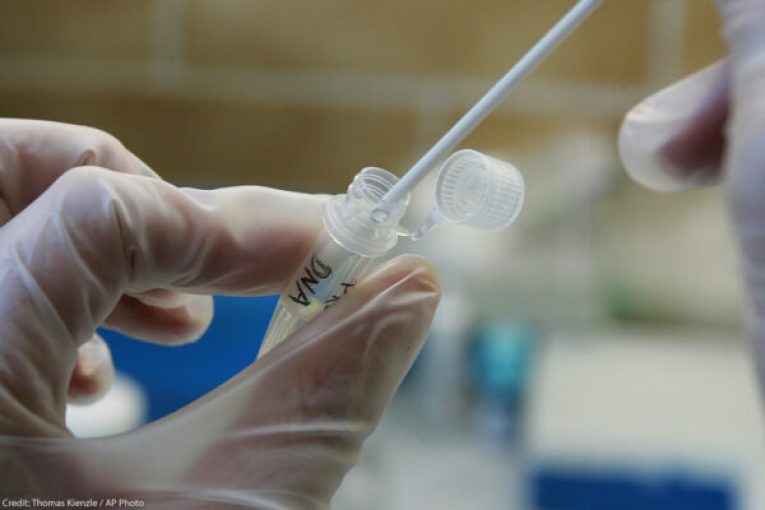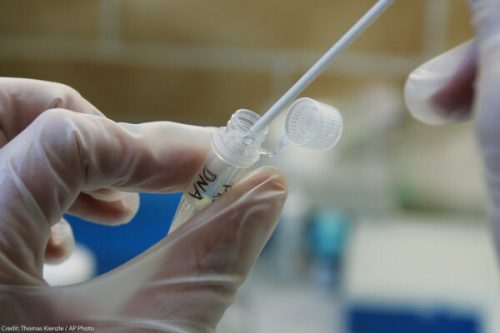

By: Ineka Damen
SAN FRANCISCO– San Francisco Police Department (SFPD) announced this week that they will no longer use survivors’ DNA in unrelated crimes after district attorney Chesa Boudin pressured the police department to end the practice. This announcement follows a nationally covered story of a San Francisco rape survivor’s DNA, collected from a rape kit in 2016, used by police to link the survivor to a recent property damage crime last week.
Boudin insisted he had no knowledge of this practice and immediately dropped all charges against the rape survivor. The survivor’s story uncovered a system within police departments that has been kept secret from the public. The DNA of survivors gets stored into the SFPD crime lab’s database and used when police are looking for suspects in crimes unrelated to the reason survivors voluntarily give their DNA in the first place.
SFPD Chief Bill Scott even claims he had no knowledge of this practice used in his department, stating, “If it’s true that DNA collected from a rape or sexual assault survivor has been used by SFPD to identify and apprehend that person as a suspect in another crime, I’m committed to ending the practice”.
Concerned citizens not just in San Francisco, but all across the bay are worried this procedure could be in other police departments. Although SFPD keeps survivors’ DNA in their crime lab, which is very costly, Berkeley’s police department currently does not have a crime lab of their own, according to detective Sean Tinny of the Special Victims Unit in Berkeley. Tinny explains that this practice is “not commonly used by police departments.”
However, after finding out that a majority of police departments lack effective communication among one another and even police chiefs don’t know what procedures are used in their precinct, other departments could easily be utilizing this practice right under the public’s noses.
Critics of this practice argue that since the police use survivors’ DNA without consent and a lack of clarity, it violates their constitutional rights. UC Berkeley Human Rights Professor and lawyer Helene Silverberg states that the DNA used in the survivor’s rape kit “may have been a violation of the rape survivor’s constitutional protections against unreasonable searches and seizures.” Silverberg adds, “These protections are essential in a free society because they place strict limits on the tools governments can use to investigate crimes.” Boudin backs this claim by dropping the case against the survivor last week, citing a violation of her constitutional rights.
In addition to the violations of one’s privacy rights, this procedure could also discourage survivors who would otherwise come forward due to fears of being potentially connected to a crime. Rape is already an extremely unreported crime, with 300,000 people raped in 2020 and less than 23% reported to the police, according to a letter to the FBI by California Representative Adam Schiff.
The way police departments handle survivors’ DNA is yet another reason survivors may distrust the system, and the newfound awareness of this practice could very well lead to fewer reports in the years to come. For survivors of sexual assault, according to a new article about the rape victim, the trauma of reporting their experiences and dealing with the criminal justice system can feel like a ‘second rape,’ The method used by the San Francisco police could mean a survivor experiencing a ‘third rape.’
Silverburg argues that “by deterring sexual assault survivors from coming forward, the crimes lab’s practice has the utterly counter-productive effect of making it more likely that sexual assaults in the city will not be investigated or prosecuted.”
Schiff is asking FBI Director Christopher Way to investigate this practice used by the San Francisco police department, calling it a ‘deeply disturbing’ practice and one that could deter many other survivors from reporting their assaults. Schiff and Boudin both believe that other police departments are using this practice, which could significantly affect future reporting by survivors nationwide.
Tinny clarifies his department is “focused on solving the crimes in front of us and not turning around to use the survivor’s DNA against them…If a police department does this practice they are sending the message that they don’t really care about helping survivors and are going to treat them as an offender.”
Ineka Damen is a writer for the Vanguard’s Social Justice Desk. She is from Santa Barbara, CA, and is currently studying Political Science with an emphasis in American Politics as well as a minor in Public Policy at UC Berkeley.




